Table of Contents
Intro
Have you ever wondered why cats meow? Meowing is the primary way cats communicate with humans and other animals, but there are many reasons behind this vocal behavior. Cats may use meowing to show affection, express hunger or alert their owners of potential danger. This article will explore the various motivations cats have for meowing and how people can respond effectively.
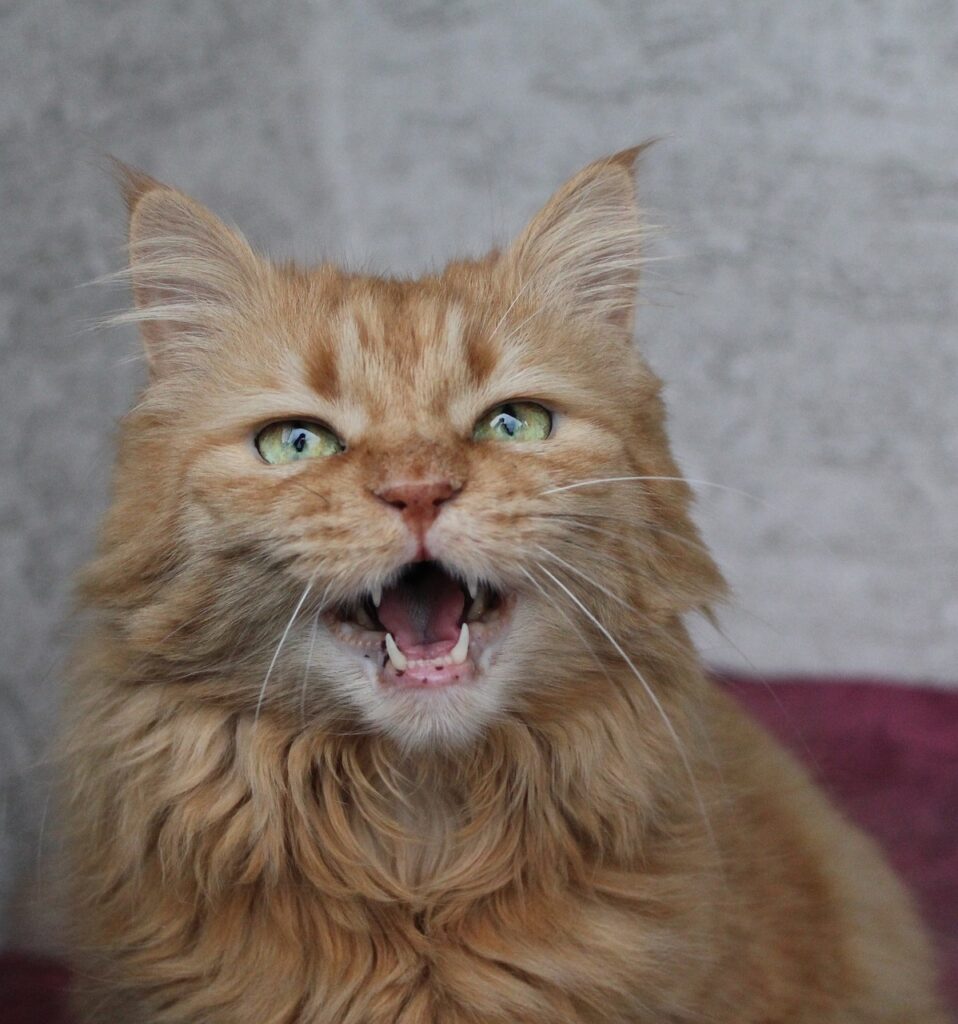
Why Do Cats Meow? Common Cat Reasons Why Cats Meow
Cats are known for their unique ability to communicate with humans through various vocalizations. One of the most common sounds they make is meowing. But why do cats meow? Contrary to popular belief, cats don't meow at each other in the wild. Instead, they use body language and scent marking to communicate with other felines. Meowing is a learned behavior that domestic cats have developed specifically to interact with humans.
Meowing can serve many purposes for cats when communicating with their owners. For example, a cat may meow as a greeting when their owner returns home or as a request for food or attention. Some cats may also use meows to express discomfort or pain, such as when they are sick or injured. Additionally, some breeds of cat are more vocal than others and may naturally meow more frequently.
Overall, while there isn't one definitive answer as to why cats meow, it's clear that this particular form of communication has evolved over time and serves an important purpose in helping our feline friends interact with us humans in their own unique way.
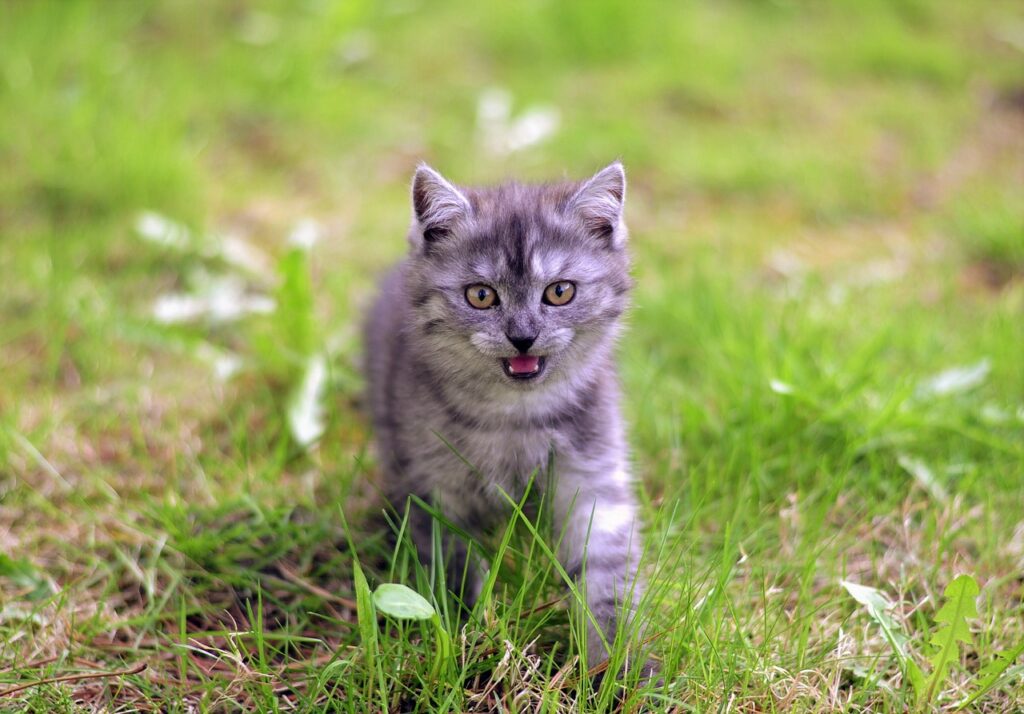
Different Cat Breeds Have Different Cat Meows
Cats are known for their distinctive voices, but did you know that different cat breeds have different meows? Each breed has its own unique way of communicating with its owners, and understanding these nuances can help you develop a deeper bond with your furry friend.
For example, Siamese cats are known for their loud and persistent meows, while Ragdolls have a softer and more melodic tone. Persian cats, on the other hand, often have a more raspy and hoarse meow that may sound like they're wheezing. Some breeds, like the Scottish Fold, may have a particularly cute and endearing meow that can melt your heart.
It's not just the sound of the meow that's different, either – some breeds, like the Bengal, may be more talkative than others and constantly meow to get attention.
By paying attention to your cat's meows and learning the specific nuances of their breed, you can better understand their communication and respond to their needs more effectively. So next time your cat meows, listen carefully – they may be saying more than you think!
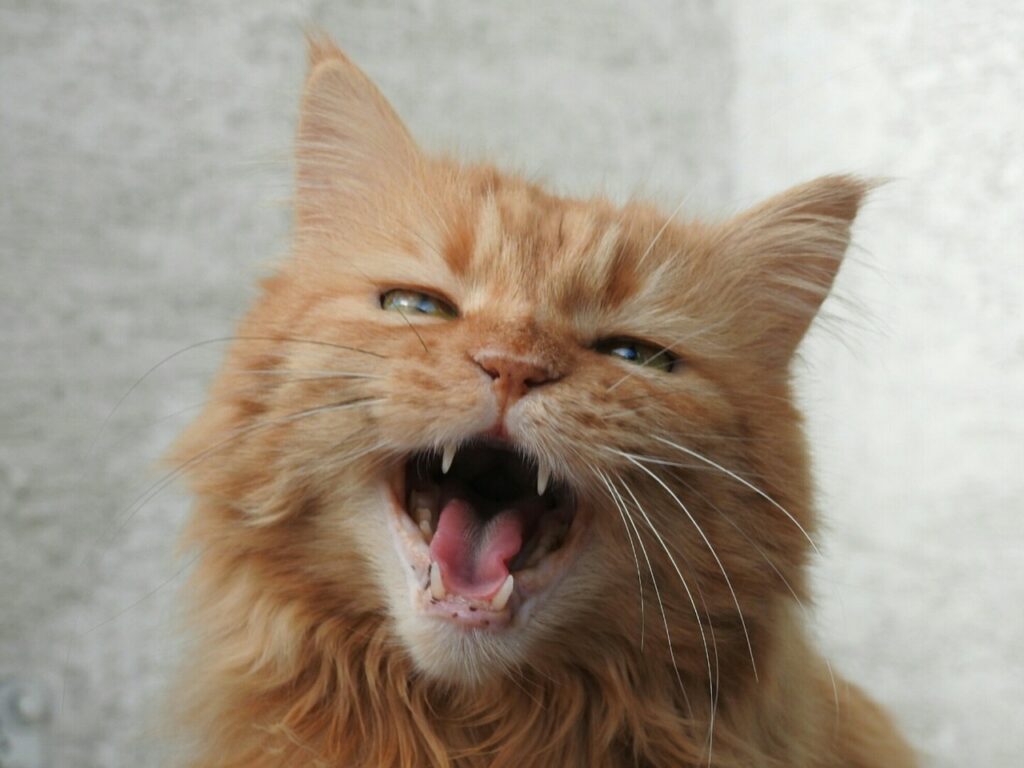
Your Cat May be Meowing Because Of Physical Reasons
Cats meow for various reasons, and one of these reasons includes physical ones. For instance, your cat may meow due to a medical condition or illness. If your cat has an injury or is in pain, they may communicate this through meowing. Additionally, older cats experiencing hearing loss may also start to excessively meow as a means of compensating for their loss of hearing.
Another physical reason why cats may excessively meow is hunger. Often times when cats are hungry, they will loudly vocalize their desire for food through excessive meowing. Similarly, if you've recently changed your cat's diet or feeding schedule, they may also start to excessively meow until they get used to the changes.
Lastly, some cats simply have more vocal personalities than others and enjoy communicating with their owners through constant meowing. While it can be frustrating at times, it’s important to remember that every cat has its own unique personality and behaviors that make them who they are!
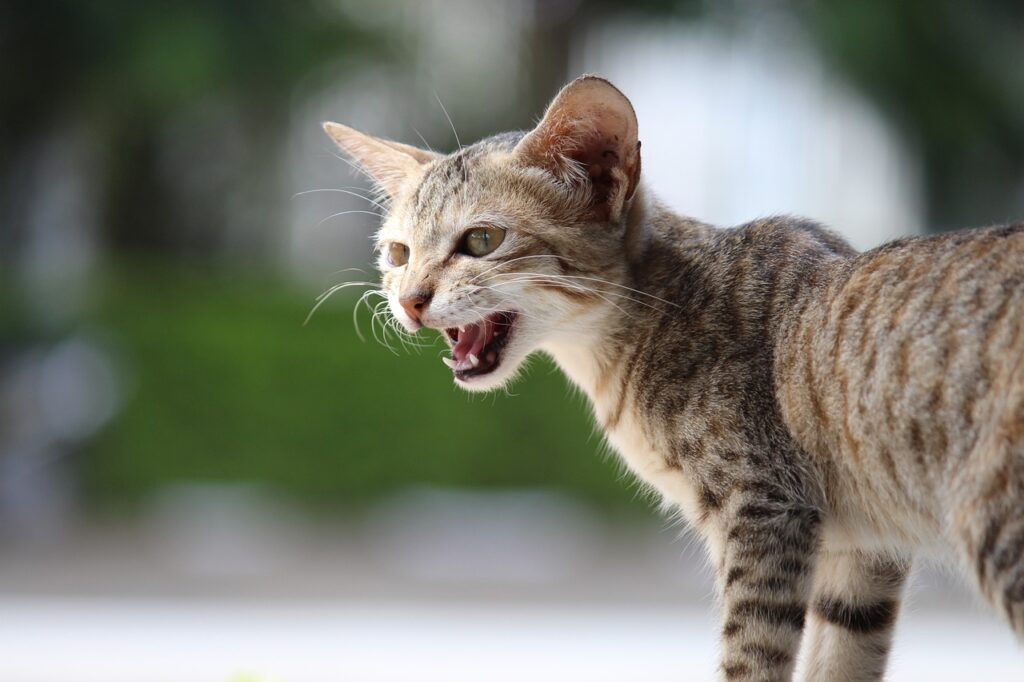
Social & Communicative Meows Mean Different Things
One of the main reasons why cats meow is social communication. Cats are highly social creatures that use various vocalizations to interact with their owners and other felines. Meows can signal different things depending on the tone, pitch, and duration of the sound. Some meows are friendly greetings or calls for attention, while others express fear or aggression.
Social meows can also convey a range of emotions such as happiness, contentment or frustration. For example, a short, high-pitched “mew” may indicate excitement when a cat sees its owner coming home after work. On the other hand, a low-pitched growl or yowl may be used to indicate anger towards another cat.
In summary, social and communicative meows are just one way in which cats interact with humans and other animals around them. Understanding what these sounds mean can help us better communicate with our feline friends and strengthen our bond with them over time.

Feline Kitten Age & Variation in Cat Sounds
Cats communicate through a variety of sounds and behaviors, but meowing is one of the most common ways cats interact with humans. Meows can vary in tone, pitch, duration, and frequency depending on a cat's age and personality. Kittens often have high-pitched meows that are short and frequent as they try to get the attention of their mother or caregiver. As cats grow older, their meows may become more elongated and lower in pitch.
Aside from age, individual cats also have unique variations in their vocalizations. Some cats are naturally more talkative than others while some may only meow when they want something specific such as food or attention. In addition to variation in meows between individual cats, different breeds may also have distinct vocalizations.
Overall, understanding your cat's vocalizations can provide insight into their needs and emotions. By paying attention to changes in the pitch or frequency of your cat's meow, you can better understand what they are trying to communicate with you.
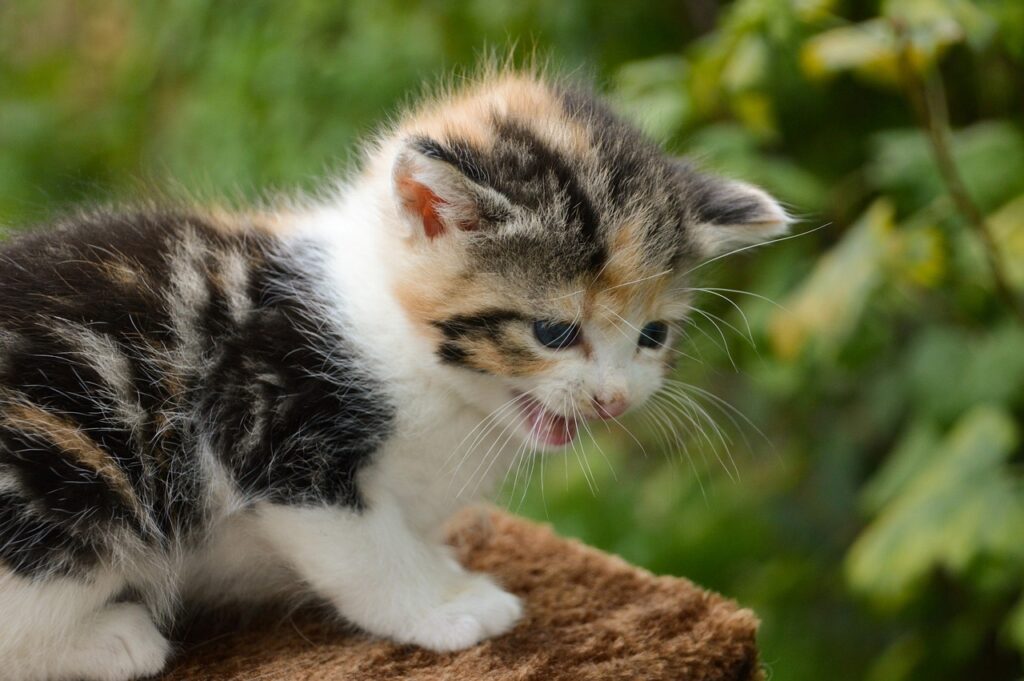
Possible Health Issues Might Be Why Is Your Cat Meowing So Much
Cats are known for their vocalization skills, specifically their ability to meow. However, excessive or unusual meowing can be a sign of possible health issues. Some cats may develop hyperthyroidism, which is an overactive thyroid gland that causes weight loss, increased appetite and thirst, and vocalization.
Another potential issue is feline lower urinary tract disease (FLUTD), which can cause painful urination, frequent urination or no urination at all. Cats with FLUTD may also show signs of lethargy or decreased appetite. Other possible health issues that could lead to excessive meowing in cats include dental problems such as tooth decay or gum disease, hypertension or high blood pressure, anxiety and stress-related behavior.
As a cat owner, it is important to pay attention to your pet's behavior and take note of any changes in their regular habits. If you notice excessive meowing or other unusual behaviors in your cat, it's best to seek advice from a veterinarian who can help identify any underlying health issues and provide appropriate treatment.
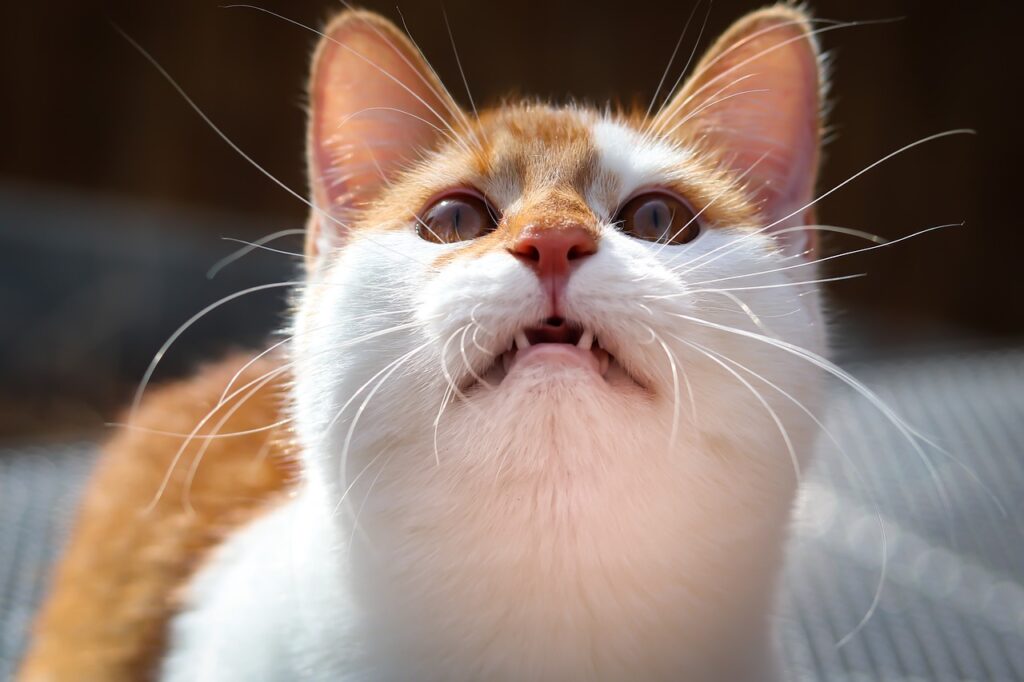
Cats Purr – A Special Form of Communication
Cats are known for their unique way of communicating with humans. Apart from meowing, cats use purring to convey different emotions and feelings. Purring is a low-toned sound that emanates from the cat's throat when it inhales and exhales. For many years, researchers have been trying to understand why cats purr. While some believe that cats purr when they are happy or content, others argue that it could also indicate distress or pain.
In addition to emotional communication, cats also use purring as a way of establishing social bonds with other felines and humans. Kittens learn how to purr at an early age as a way of communicating with their mothers during nursing. As they grow older, they continue using this communication method to bond with their littermates and other adult cats in the community.
Overall, while the exact reason behind cat's purring is still not fully understood by researchers; it’s clear that this special form of communication plays an important role in feline social structures and relationships with humans alike.
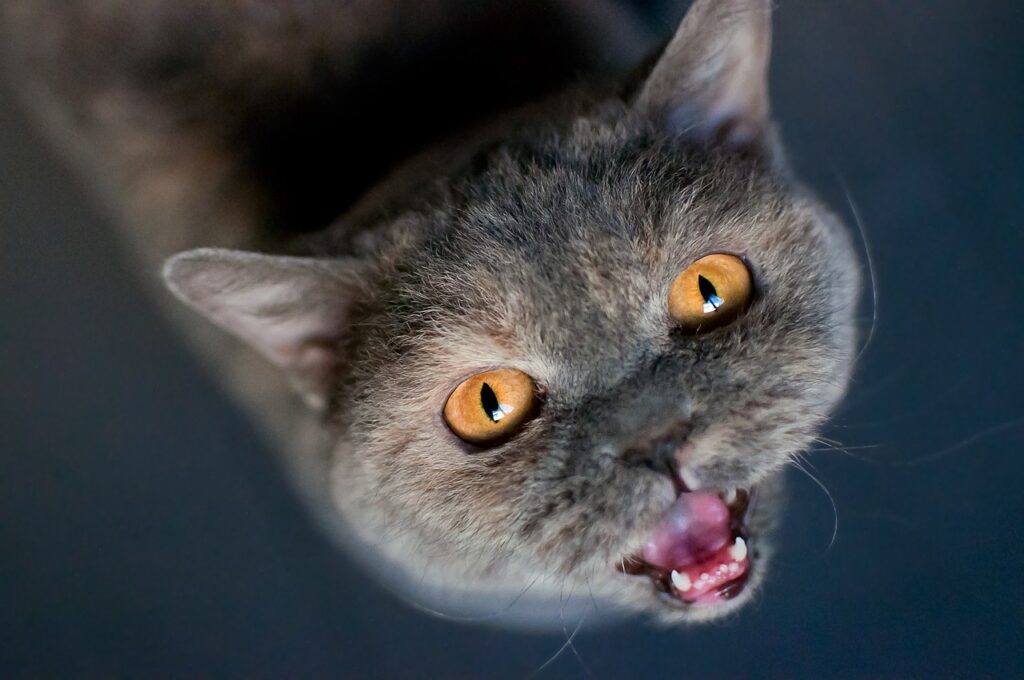
Why Your Cat May Hiss, Yowl And Growl
Cats are fascinating creatures and as a pet owner, you might notice that they communicate in different ways. Sometimes, cats meow to get your attention, but occasionally, your cat may hiss, yowl and growl. Such behavior can be alarming and concerning, especially if you are not sure why your cat is doing so.
As kittens, cats learn to express themselves using different sounds, body language, and facial expressions. Hissing, yowling, and growling may indicate different things, depending on the situation. For instance, if your cat feels threatened, pained or scared, they might hiss or growl. It is their way of signaling danger or warning others to stay away. Additionally, if your cat is feeling lonely or bored, they might yowl for attention. As such, understanding your cat's behavior can be vital in determining their wellbeing.
If your cat is displaying unwarranted behavior, it is worth consulting with your vet to get a better understanding of their needs. Understanding why do cats meow is just the first step in developing a healthy bond with your pet. By understanding your cat's communication style, you can provide them with the necessary support to thrive
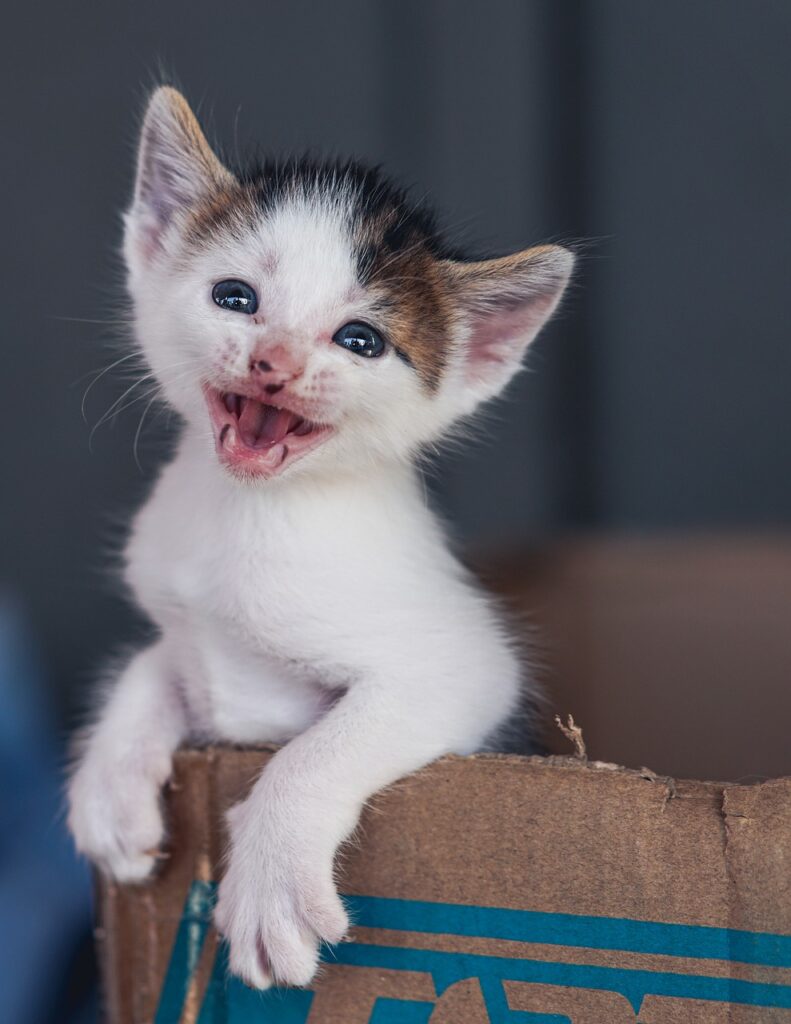
Conclusion: The Complexity of Cat Body Language And What Your Cat May be Trying To Say
In conclusion, the complexity of cat language goes beyond just meowing. Although meows are the most common form of vocal communication, they are not the only one. Cats also use body language to communicate their moods and intentions with other cats and humans alike. For instance, when a cat is feeling friendly or happy, it will typically rub its head or body against people or other animals.
Further research has shown that cats have over 100 different vocalizations, each with a specific meaning. These vocalizations range from purring, growling, hissing to chirping and chattering sounds. While some of these sounds are easy to interpret, others require more attention to understand what a cat is trying to convey.
It is important for pet owners to take time to learn and understand their cats' unique personalities and behaviors by observing them closely. This way, they can better understand their pets' needs and provide them with proper care and attention – which helps strengthen the bond between owner and feline companion in the long run.
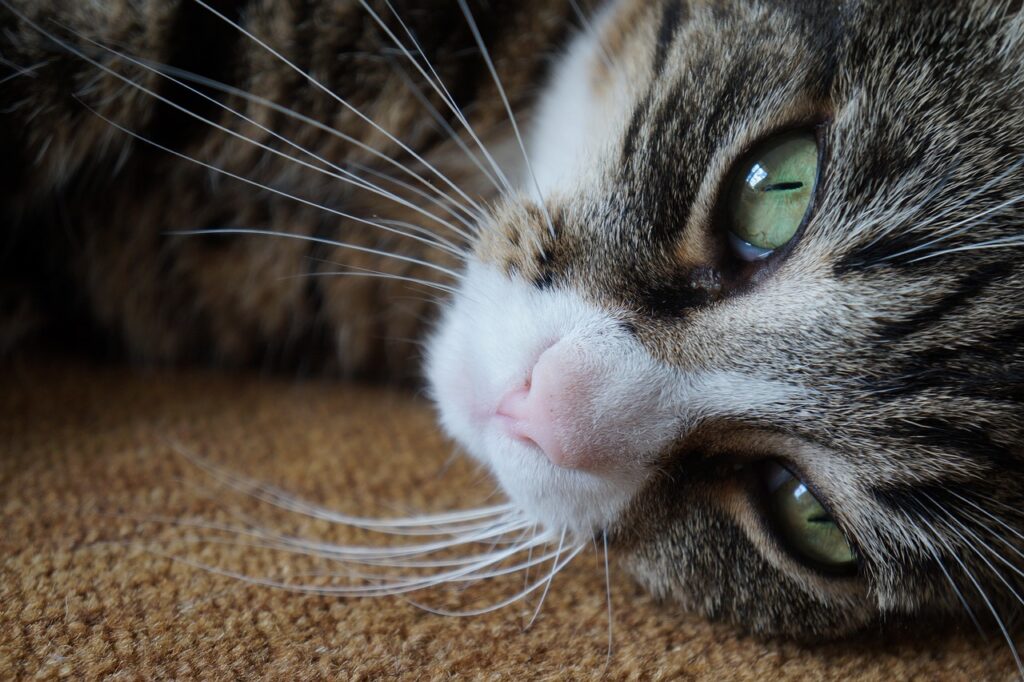
Related Articles
Cats Why Do Cats Meow?
https://www.cats.org.uk/cats-blog/how-to-speak-cat-why-do-cats-meow
Live Science Why Do Cats Meow?
https://www.livescience.com/why-cats-meow.html
Purina Why Do Cats Meow?
https://www.purina.co.uk/articles/cats/behaviour/understanding-cats/why-do-cats-meow
RD Why Do Cats Meow?
https://www.rd.com/article/why-do-cats-meow/
Whiskers Why Do Cats Meow?
https://www.whiskas.co.uk/kit/why-do-cats-meow
Insider Why Do Cats Meow?
https://www.insider.com/guides/pets/why-do-cats-meow
Daily Paws Why Do Cats Meow?
https://www.dailypaws.com/cats-kittens/behavior/common-cat-behaviors/cat-meowing
Cat Friendly Why Do Cats Meow?
https://catfriendly.com/why-does-my-cat/meow/
USA Today Why Do Cats Meow Explained
https://www.usatoday.com/story/news/2022/07/23/why-do-cats-meow-explained/10052658002/
Pet MD Why Do Cats Meow?
https://www.petmd.com/cat/behavior/why-do-cats-meow
The Kid Should See This Why Do Cats Meow?
https://thekidshouldseethis.com/post/why-do-cats-meow
Pet Helpful Why Do Cats Meow?
https://pethelpful.com/cats/Why-Do-Cats-Meow
Nerd Momma Why Does My Cat Lick Me?
https://nerdmomma.com/why-does-my-cat-lick-me7-reasons-your-cat-loves-to-lick-you/#more-2519
Nerd Momma Why do cats knead and make biscuits?
https://nerdmomma.com/why-do-cats-knead-7-amazing-behaviour-facts/#more-1693
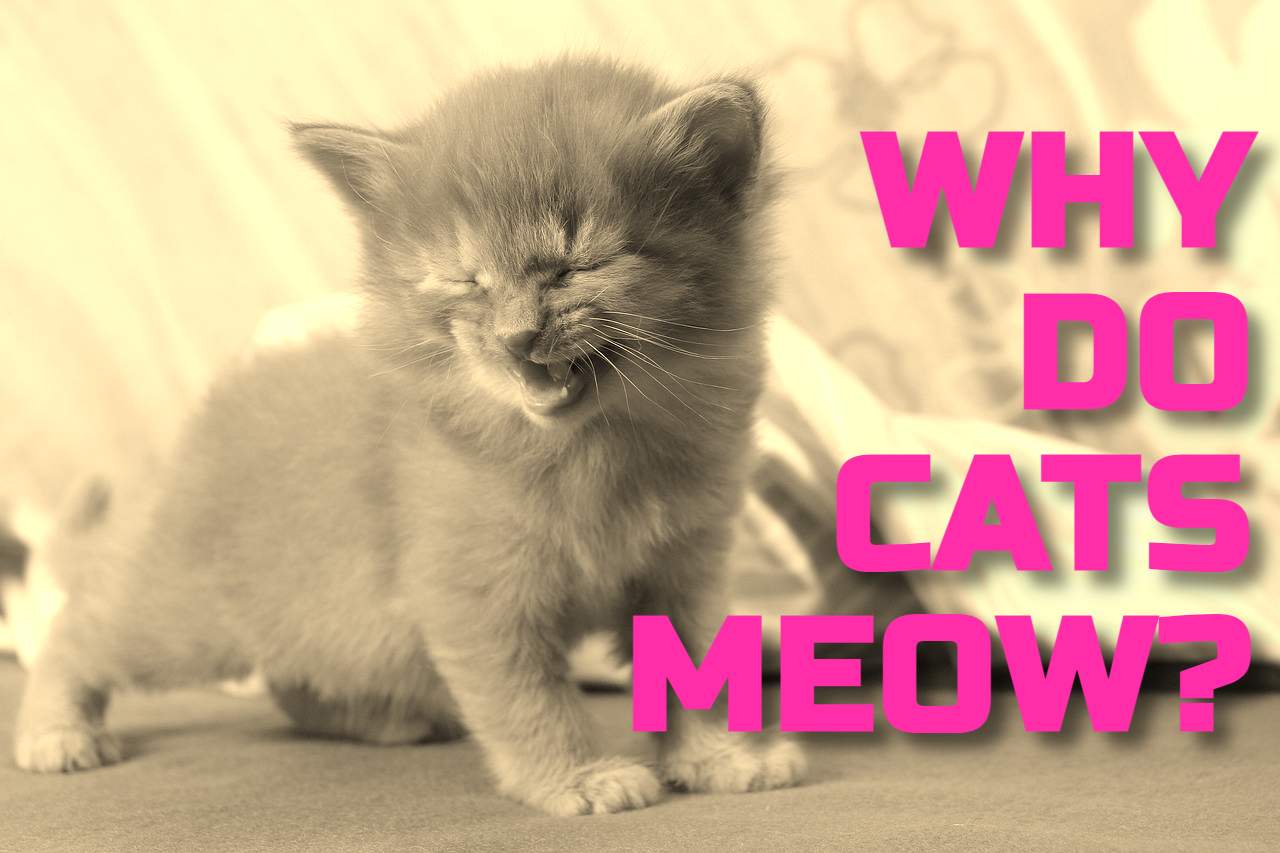
Our very excitable little cat appropriately says, “Wow!” most of the time.
Hi Mitch your little cat sounds like a cutie.